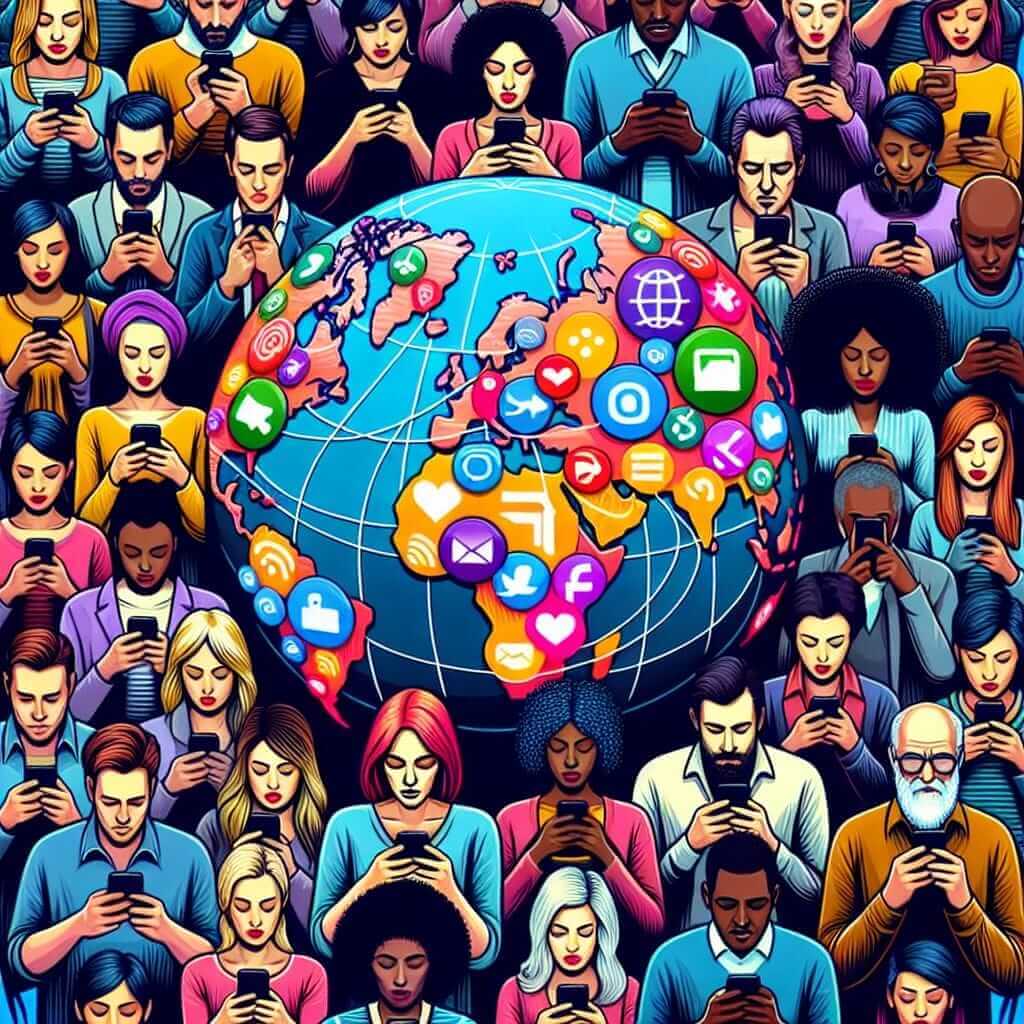The topic of “The influence of social media on public opinion” frequently appears in the IELTS Writing Task 2 exam. With the ever-increasing presence of social media platforms, this subject has become highly relevant and carries significant weight in discussions around the media’s role in shaping societal views. In this article, we’ll delve deep into a comprehensive analysis of this topic, create a model essay, and provide useful tips and vocabulary for IELTS aspirants.
Analysis of the Topic
The influence of social media on public opinion encompasses various facets, including the role of social networks in disseminating information, shaping public perception during elections, and reinforcing stereotypes. This subject has appeared numerous times in past IELTS exams and is likely to continue doing so given its relevance.
To understand the nuances of this topic, let’s first explore a few commonly found IELTS Writing Task 2 prompts:
- To what extent do social media platforms impact the formation of public opinion?
- How do social networking sites influence political views among young people?
- Discuss the role of social media during election campaigns.
For this article, we will focus on the first prompt because of its broad application and recurrent appearance in past exams.
To what extent do social media platforms impact the formation of public opinion?
Analyzing the Prompt
The task here is to discuss the extent to which social media influences public opinion. This requires identifying key ways in which social networking sites shape perceptions and offering evidence or examples to support these points. It is also crucial to consider counterarguments to present a balanced view.
Sample Essay
Introduction
In recent years, social media platforms have become a pivotal component in disseminating information and shaping public opinion. This essay will discuss the extent of social media’s impact on public opinion, explore both positive and negative influences, and provide relevant examples to substantiate these points.
Body Paragraph 1
Firstly, social media significantly impacts public opinion through the rapid dissemination of information. Platforms like Twitter and Facebook allow for the instant spread of news and events, often faster than traditional media channels. For instance, breaking news about natural disasters or political scandals frequently trends on social media before being covered by TV networks. This rapid spread can influence public perception by providing immediate, albeit sometimes unverified, information.
Body Paragraph 2
Moreover, social media platforms create echo chambers where users are exposed primarily to information that aligns with their existing beliefs. This can reinforce pre-existing opinions and polarize public attitudes. For example, algorithms used by social media sites tend to show content that a user is likely to engage with, which can lead to a skewed perception of reality as individuals see only what they agree with.
 Social media's influence on public opinion
Social media's influence on public opinion
Body Paragraph 3
Conversely, social media can also democratize information and empower marginalized voices. Activist movements such as #MeToo and Black Lives Matter have gained global traction largely through social media. These platforms provide a space for underrepresented groups to share their stories and mobilize support, thereby influencing public opinion and prompting social and political change.
Body Paragraph 4
However, the influence of social media is not always beneficial. The spread of misinformation and fake news is a critical concern. False information can easily go viral, misleading the public and creating panic or unwarranted skepticism. For example, during election periods, false claims about candidates can spread rapidly, affecting voters’ perceptions and potentially altering election outcomes.
Conclusion
In conclusion, social media platforms play a profound role in shaping public opinion, both positively and negatively. While they allow for the rapid spread of information and give a voice to marginalized communities, they also contribute to the polarization of opinions and the dissemination of misinformation. It is essential for users to critically evaluate the information they encounter online and for platforms to take responsibility in curbing false information.
Word count: 357
Tips for Writing about This Topic
When tackling an essay on this topic, consider the following tips:
- Balanced View: Always aim to present both sides of the argument to provide a well-rounded essay.
- Examples: Specific examples can strengthen your argument. Mention real-world events or trends related to social media’s influence.
- Cohesive Structure: Ensure each paragraph transitions smoothly to the next for better clarity and flow.
Difficult Vocabulary
- Dissemination (noun): /dɪˌsɛmɪˈneɪʃən/ – The act of spreading something, especially information, widely. Example: “The rapid dissemination of news on social media…”
- Polarize (verb): /ˈpoʊləˌraɪz/ – To divide into two sharply contrasting groups or sets of opinions or beliefs. Example: “Social media can polarize public attitudes…”
- Algorithm (noun): /ˈælɡəˌrɪðəm/ – A process or set of rules followed in calculations or problem-solving operations, especially by a computer. Example: “Algorithms used by social media sites…”
- Democratize (verb): /dɪˈmɑkrəˌtaɪz/ – Make something accessible to everyone. Example: “Social media can democratize information…”
- Misleading (adjective): /ˌmɪsˈliːdɪŋ/ – Giving the wrong idea or impression. Example: “False information can be misleading…”
Conclusion
To sum up, the influence of social media on public opinion is a multifaceted issue that is highly relevant in today’s digitally connected world. As you prepare for IELTS Writing Task 2, consider practicing similar prompts to ensure a well-rounded understanding of the topic. Other potential prompts might include:
- How does social media influence political activism?
- The impact of social media on news dissemination.
- The role of social media in shaping views on gender equality.
By exploring these angles, you can build a comprehensive skill set for your IELTS exam.
For more in-depth articles and model essays, check out The Influence of Social Media on Public Opinion During Elections and The Role of Social Media in Political Activism.


